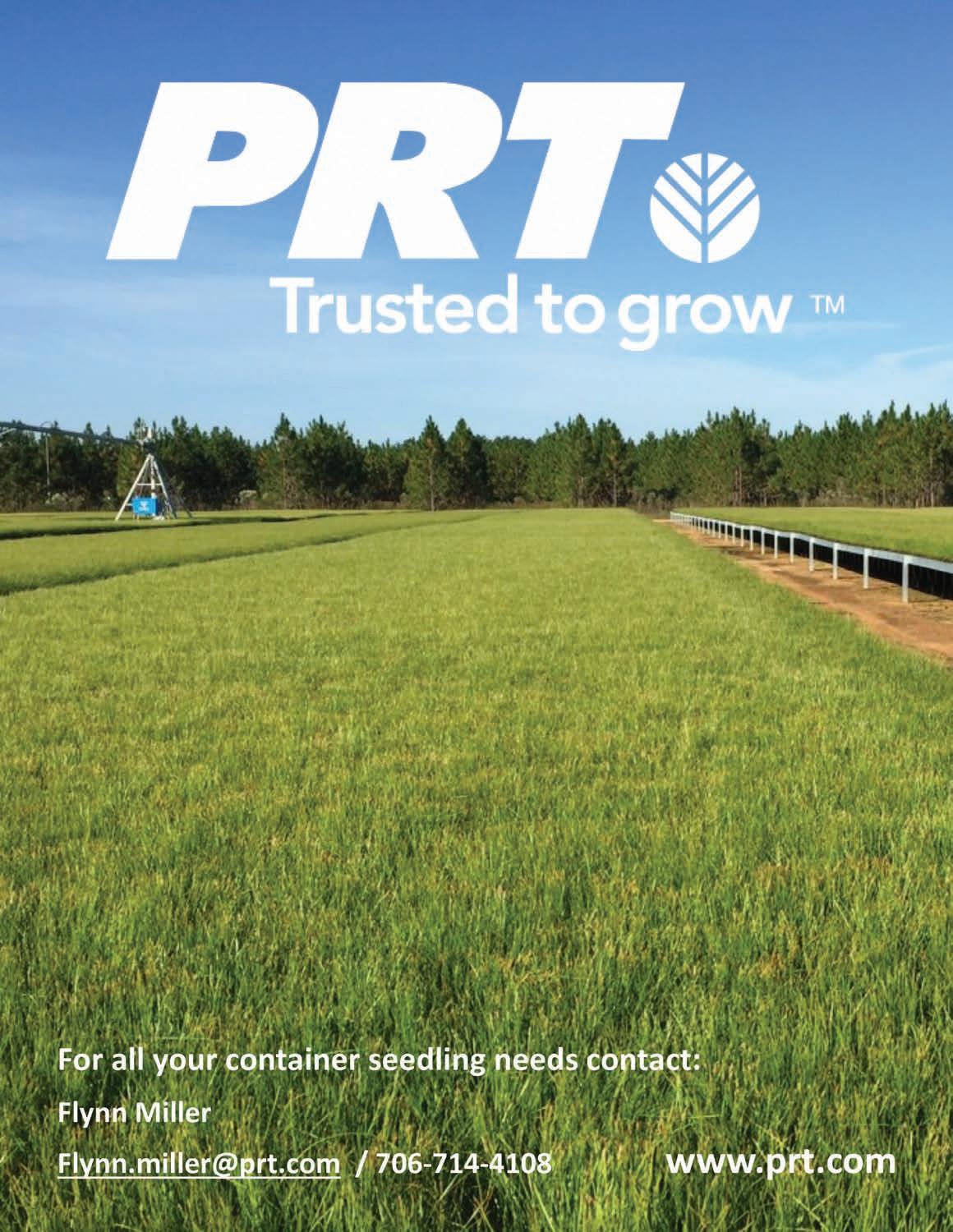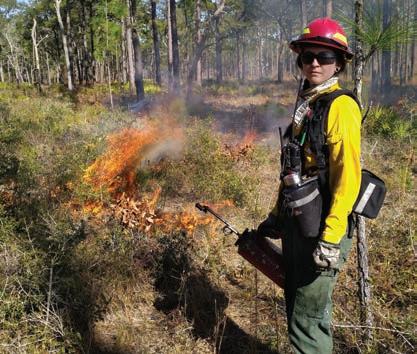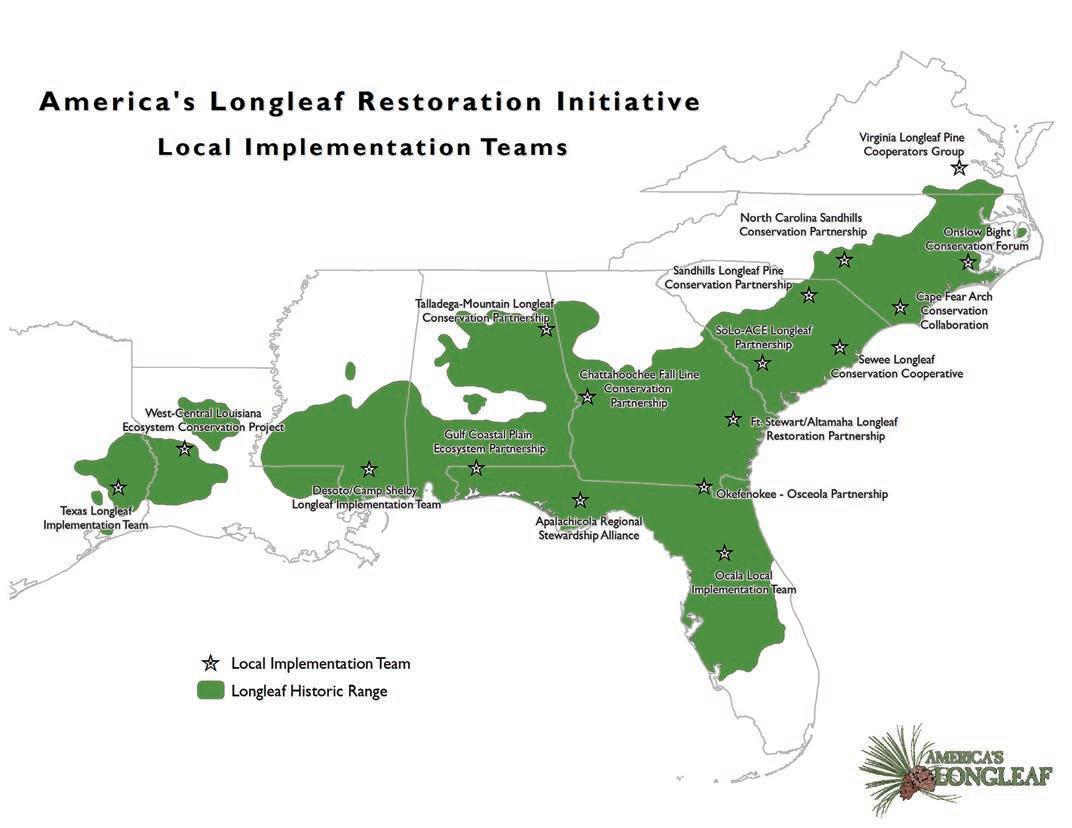
6 minute read
ForestHER: An Ecological Forest Education Program to Empower Women Landowners
By Dr. Becky Barlow, Alabama Cooperative Extension System Forestry Extension Specialist and Harry E. Murphy Professor of Forest Management

Advertisement
ForestHER:
An Ecological Forest Education Program to Empower Women Landowners
“I’m ready to give up.” That was the first thing said by a Regional Extension Agent in the fall of 2015 when our Alabama Cooperative Extension System Forestry, Wildlife, and Natural Resources (FWNR) team met to start planning for the new year. Other members of the team echoed this sentiment. They were weary of canceled workshops due to limited attendance or workshops attended by “the same old group.” And I must admit, I too was disheartened when earlier that year I looked out during a workshop presentation to see a person on the front row reading a paperback novel.
Yep, things had to change. Our team realized that we were not reaching family forest landowners who needed help the most. As we brainstormed new topics and ideas, it was suggested that we try reaching out to women landowners. A few of the Regional Agents were willing, so we planned our first hands-on workshop, developed especially for women, to be held the following fall. The name started as a play on words, just as a placeholder until we could come up with a “real name” for the program. But the name stuck, and in September of 2016, Alabama Cooperative Extension System launched the first ForestHER workshop! At that workshop, we welcomed more than 30 women who traveled from across Alabama and as far away as Tennessee, Michigan, Mississippi, and Ohio. Day one included information on goal setting, forest measurements, and management for wildlife, timber, and non-timber forest products like pine straw. The second day was a hands-on field tour that included tree identification, tree diameter and height measurements, forest inventory plot establishment, basal area, and a visit to sites demonstrating management techniques for wildlife and native pollinators. The energy and excitement from the participants were infectious, and the post-workshop reviews were overwhelmingly positive.
“Why aren’t you doing workshops for men?” But as with anything, not everyone thought this was a great idea. I explain to those who express concerns that everyone is welcome at all our workshops, that we have men participate in ForestHER events. We encourage families to attend together when possible. We also continue to offer a wide variety of workshops where few to none of those attending are
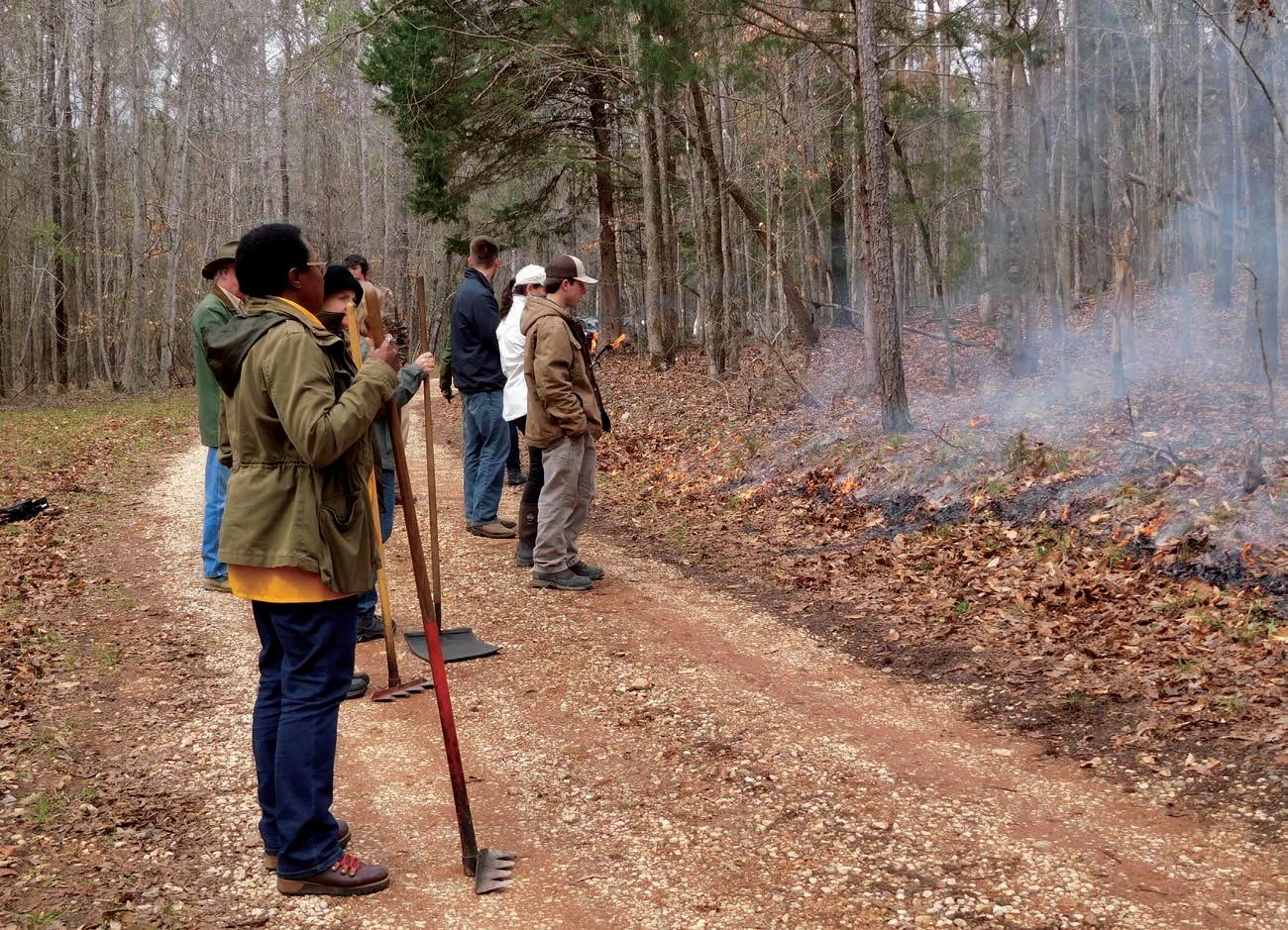



s
Participants practice measuring basal area using a forestry wedge prism at a workshop in 2019. Photo by Katie Jackson.
s
Practical skills, including how to take standard tree measurement, are an interactive component emphasized at events. Photo by Becky Barlow.
“All I know about forestry is it is trees. So much to learn. Daddy had an understanding, and he left the farm to Mama. Now she's left it to us, four sisters. I know they are no more knowledgeable than I am. So thankful for the ForestHER program.” – ForestHER participant
women. And maybe this is why – past ForestHER workshop participants confided in us that: 1.They often rely on other family members to take the lead in land management decision-making. 2.They hesitate to attend natural resource-related meetings and workshops where they feel uncomfortable because few other women are in attendance. 3.They need and want science-based land management information to help them manage their land, but they worry about looking foolish or appearing ignorant when asking questions.
Turns out those women are not alone. Surveys of U.S. forest landowners have found that, in general, women are less likely to make, or be part of, family forestland management decisions (Butler et al., 2016). However, this same study found that the number of women listed as the primary forestland decision-maker increased from 11% to 22% between 2006 and 2013 (Butler et al., 2016). This is because, historically, men are reported as primary forestland decision-makers. But as these landowners age, their property eventually passes to the secondary forestland decision-maker. Often these are wives, sisters, daughters, and nieces who may or may not be armed with the knowledge to take on the task. Women, often out of necessity, are making important short and long-term decisions about their forestland, but they may not be getting the assistance they need to make informed, confident land management decisions. ForestHER for the future. Since 2016, we have reached over 500 women in 16 states and many countries, including Canada, India, and Korea, with the ForestHER programs. Although in 2020, many of our faceto-face workshops were postponed or canceled, our team came together and quickly figured out how we could still have workshops in an online program format. In 2020 we had 9 webinars, and in some cases, we increased our reach 10 times over what we would have with face-to-face workshops. Alabama ForestHER also launched a podcast series in 2020. As we begin our 6th year of programming, 12 webinars are scheduled, and we have tentatively planned some face-to-face events for late 2021.
References Butler, B.J., J.H. Hewes, B.J. Dickinson, K. Andrejczyk,
S.M. Butler, and M. Markowski-Lindsay. 2016. Family forest ownership of the United States, 2013: Findings of the USDA Forest Service’s National Woodland Owner
Survey. Journal of Forestry. 114(6):638-647. http://dx.doi.org/10.5849/jof.15-099.
To see our current listing of webinars, to register for events, or to listen to our podcast, visit our FWNR Webinar webpage www.aces.edu/blog/topics/forestry/foresther-workshops/.
Small, interactive groups provide an engaging setting for plant identification practice. Photo by Katie Jackson.
Engaging Women in Forestry Across the Southeast
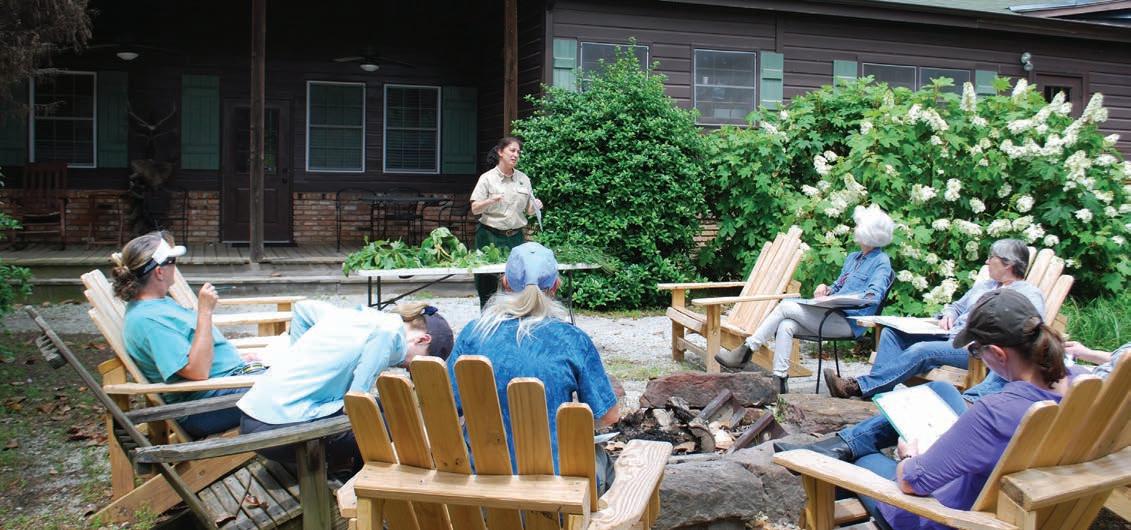
By Lisa Lord and Sarah Crate, The Longleaf Alliance
In addition to Alabama Cooperative Extension System ForestHER programs, there are complementary initiatives across the Southeast (and beyond). The need and interest are so great that these opportunities consistently draw participants from multiple states, even before the surge of virtual offerings opened the geographical reach of outreach events.
In fact, Women Owning Woodlands (WOW) is a national project from the National Woodland Owners Association (NWOA) and the USDA Forest Service. Women Owning Woodlands has chapters throughout the country and aims to support women landowners and forestry professionals. Within the longleaf range, WOW programs are frequently offered in North Carolina (through NC State Extension) and South Carolina (through Clemson Extension), with topics ranging from chainsaw safety, pollinator habitat, land management, and more. Get connected with WOW at WomenOwningWoodlands.net.
Inspired by the name of Alabama’s ForestHER and the success of localized female focused programming in North Carolina, ForestHER NC is a state-wide outreach initiative that began in 2019 as a joint effort between twelve conservation partners in North Carolina. Follow ForestHER NC on Facebook or reach out via email at foresthernc@gmail.com.
Female business owners and forestry consultants are another valuable resource for women landowners beyond what the state-led and non-profit groups provide. In Georgia, for example, Land & Ladies specializes in outreach to women landowners with workshops and webinars.
These initiatives provide forestry and wildlife-related learning opportunities while also offering valuable networking spaces for women, both landowners and professionals alike. The Longleaf Alliance hosted a “Women in Longleaf Lunch and Learn” at the 2020 Biennial Conference, the largest and longest-running longleaf event in the country. Inspired by women's work and leadership in natural resources, The Women's Forest Congress hosted an international event on March 8th, International Women's Day 2021, bringing people together to share experiences and develop strategies and solutions for forests through the female perspective.
While designed with women in mind, these efforts are not gender exclusive. With any forestry outreach program, it is beneficial for families to attend together in preparation for the next generation of landowners. At a ForestHER NC event, one man shared that he felt encouraged to attend because “I want my wife to have her own knowledge and networks when I’m gone.” Programs like these are undoubtedly paving the way for future generations to manage longleaf forests into the future.
